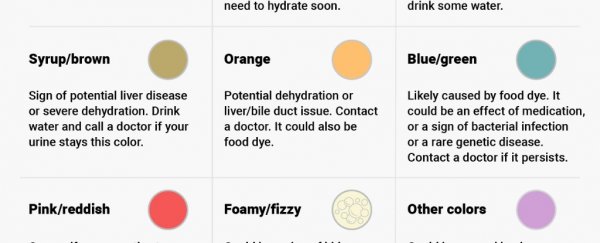Have you ever noticed your urine turning a vibrant shade of pink or red after enjoying a beet-rich meal? It’s a common experience, and one that can be quite alarming if you aren’t aware of the reason behind it. While it may seem like a cause for concern, fear not! This change in color is usually harmless and entirely normal. But have you ever wondered why this happens? Let’s delve into the fascinating world of beets and urine color to uncover the truth behind this curious phenomenon.

Image: www.pinterest.com
Beets, with their vibrant crimson hue, are packed with nutrients, including a pigment called betalain. This pigment is responsible for the beet’s bold color and plays a key role in the change we see in our urine after consuming them. When you eat beets, your body absorbs the betalain, and as it makes its way through your system, it gets filtered by your kidneys and eventually excreted in your urine. The high concentration of betalain in these filtered waste products can then give the urine a striking crimson or reddish tint.
Understanding the Science Behind the Color Change
The process of betalain metabolization is a fascinating one. Here’s a simplified explanation:
1. Digestion and Absorption:
Once you consume beets, your body begins to break them down in your digestive system. The betalain pigments, especially betanin and vulgaxanthin, are released and absorbed into your bloodstream.
2. Filtration and Excretion:
These pigments then travel through your circulatory system, and as they reach your kidneys, they are filtered along with other waste products. Betacyanin, one of the betalain molecules, is responsible for the vibrant red color that we observe.

Image: www.sciencealert.com
3. Urine Coloration:
Since the concentration of betacyanin in your urine increases after consuming beets, it can give it a distinctive pink or reddish hue. The intensity of the color often depends on several factors, including:**
- Amount of beets consumed: The more beets you eat, the more betacyanin will be absorbed and excreted, thus leading to a more pronounced color change.
- Individual metabolic differences: Some people process betalain differently than others, resulting in varying intensities of color change.
- Other factors: The presence of certain medications or supplements, and even the pH of your urine, can also affect the color change.
Is It Always Harmless?
While the pink or red color in your urine after beet consumption is mostly harmless, there are a few scenarios where it might be worth consulting a medical professional:
- Persistent color change: If you notice a persistent change in your urine color even after you’ve stopped consuming beets, it could be a sign of an underlying medical condition. This could include kidney stones, urinary tract infections (UTIs), or liver problems.
- Accompanied by other symptoms: If the color change is accompanied by any other symptoms such as pain, burning, or blood in your urine, it’s essential to seek medical attention promptly.
- Concerns about medication interactions: Some medications can interfere with the way your body processes betalain, potentially affecting the color of your urine. If you’re taking any medications, it’s a good idea to discuss any concerns with your doctor.
The Benefits of Beets
Despite the temporary change in urine color, beets offer many health benefits, making them a valuable addition to a balanced diet. Some of the key benefits include:
- Rich in antioxidants: Beets are packed with antioxidants, which help combat free radicals and protect your cells from damage.
- Improved blood pressure: Beets are a rich source of nitrates, which can help lower blood pressure by relaxing blood vessels and improving blood flow.
- Enhanced athletic performance: The nitrates in beets can also boost athletic performance by increasing nitric oxide levels, which improves muscle efficiency and endurance.
- Support for liver health: Beets are a good source of betaine, which can help protect your liver from damage and improve its function.
- Promotes gut health: Beets contain fiber, which is essential for maintaining a healthy digestive system and promoting regular bowel movements.
Tips for Enjoying Beets
Beets are a versatile vegetable that can be enjoyed in many ways. Here are a few ideas to incorporate them into your diet:
- Roast beets: Roasting beets brings out their natural sweetness and makes them perfect for salads, soups, or a side dish.
- Add beets to smoothies: Blend cooked beets into your smoothies for a boost of nutrition and a beautiful color.
- Make beet juice: Beet juice is a refreshing and nutritious drink, packed with vitamins and minerals.
- Pickle beets: Pickled beets are a tasty and tangy treat that can be enjoyed as a snack or side dish.
Does Beets Change The Color Of Your Urine
Conclusion
The next time your urine turns a surprising shade of pink or red after indulging in beets, remember, it’s a natural phenomenon that simply reflects the presence of the betalain pigments in your body. Beets are a nutritious vegetable with many health benefits, so don’t let a harmless color change deter you from enjoying them. If you have any concerns about your urine color or experience any unusual symptoms, consult your doctor for further evaluation.
Remember: always consult a medical professional if you have any questions or concerns about your health or any changes in your body. Stay healthy and enjoy those delicious beets!





